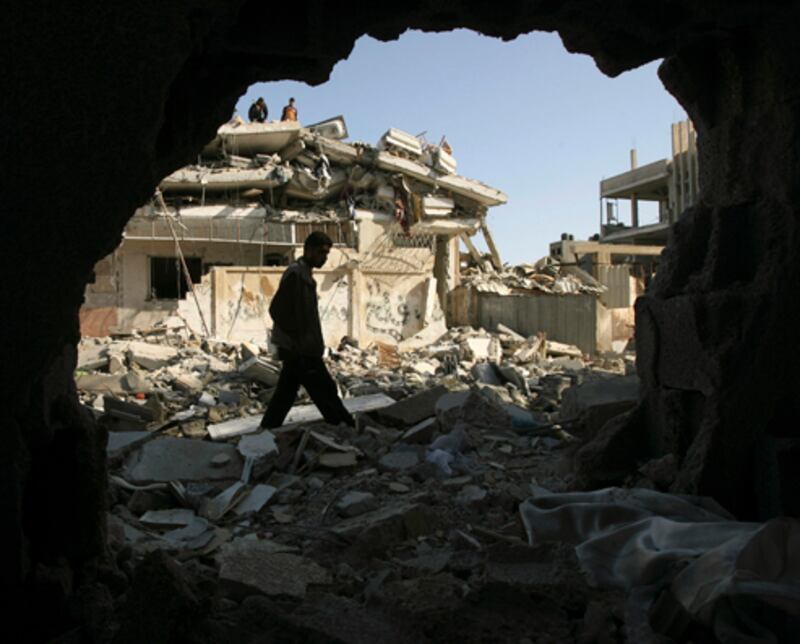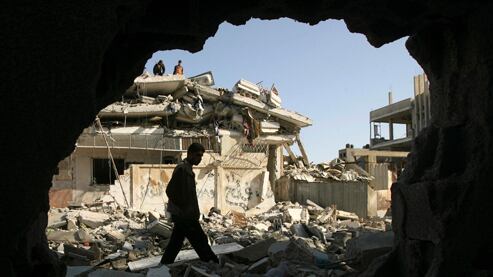A recent psychology study at Ben Gurion University of the Negev in Israel has determined that exposure to rocket attacks in southern Israel has led Israeli teens to become more violent later in life, reporting higher rates of fighting, gang involvement and arrests for crimes like carrying knives and other weapons. The results are tragic, but not unexpected: whether rocket attacks or familial abuse, it’s common sense that violence begets more violence.
And yet, despite the sympathy for affected Israelis, one can’t help but wonder about the implications for Palestinians on the other side of the Green Line. If rocket fire from Gaza has such a profound effect on Israelis, what does that mean for Palestinians living in Gaza? If psychologists measure trauma in terms of direct encounters with political violence, such as rocket attacks, then Palestinians have certainly born the burden of it. After all, they endured over 1,500 casualties during just four weeks of fighting in 2008 and 2012, compared to Israel’s 19—not to mention the regular missile attacks and armed incursions.

Political violence certainly takes a personal toll on affected Palestinians. In a study of mental health and political violence in Gaza and the West Bank published last year, psychologists found, like their Israeli counterparts, that much of this very same kind of violence affected Palestinian youth. The report, by Alean Al-Krenawi and John Graham in the February 2012 Child and Adolescent Mental Health, states:
For Gaza Strip participants, exposure to political violence was significantly positively associated with most of the mental health symptoms (except for obsession-compulsion, interpersonal sensitivity and phobic anxiety), with all of the PTSD measures (total score and subscales), with most of the aggression measures (except for verbal aggression), but not significantly correlated with social functioning. In the West Bank sample, exposure to political violence was found to be significantly positively correlated with all of the mental-social functioning variables.
The results are clear (and obvious): political violence is damaging to an individual’s mental health, regardless of nationality.
Still, the broader cultural context can’t be ignored. Both Israelis and Palestinians live in what Palestinian psychologist Dr. Eyad Hallaq calls “trauma-organized societies,” places where violence has become normative behavior and a cultural logic passed down through generations. The specific manifestation of mental health issues varies based on this context: in another 2006 study, psychologists were surprised at the coping mechanisms already in place to deal with chronic violence in the West Bank, and the relatively minimal difference in symptoms exhibited by individuals who had encountered specific acts of violence and those who hadn’t. The researchers recognized that incidents such as gunfire and arrests exist within a political system of blockade, occupation, and discrimination in which more subtle forms of violence are always at work: even when not explicitly violent, military occupation is predicated on the threat of violent repression against civilians. For Palestinians under blockade and occupation, daily life is embedded with a version of the violent trauma that the Israeli psychologists have applied to rocket attacks from Gaza.
There is no doubt that attacks on Sderot or Ashkelon are a horrendous trauma; but that trauma is part of a larger political system that binds Israelis and Palestinians despite (or perhaps, because of) enforced segregation. Whether Israeli or Palestinian, the many forms of political violence—real or threatened—take a psychological toll. Rocket attacks are only one side of the coin.






